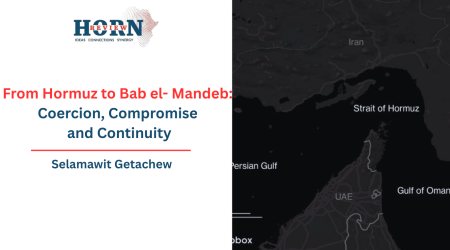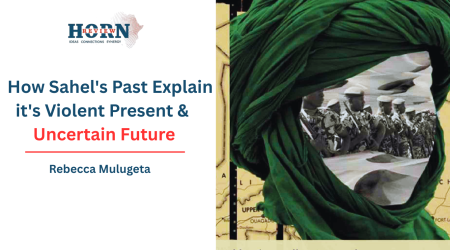
28
May
Realigning Priorities: U.S.–Africa Policy Across Two Trump Presidencies
Donald Trump’s two presidencies – first as the 45th and now as the 47th President of the United States – have brought about a discernible reconfiguration of Washington’s posture toward the African continent. Departing from the normative foundations of multilateral engagement and development – centric diplomacy, President Trump has advanced a distinctly transactional model of international relations, one guided by strategic calculus and calibrated reciprocity. While this departure has elicited both critique and cautious engagement, it simultaneously provides African states with a clearer, more structured framework for negotiating mutual interests.
Throughout Trump’s first term, a constellation of symbolic and substantive shifts shaped U.S.–Africa relations. Most notably, a 2018 meeting – reportedly featuring disparaging references to African nations – provoked considerable diplomatic unease, notwithstanding the absence of official confirmation. Perceived by many as emblematic of a reduced prioritization of Africa, the episode underscored the importance of tone, narrative, and mutual respect in sustaining high – level diplomatic trust.
From a policy standpoint, major development programs such as PEPFAR and USAID were subject to proposed budgetary constraints, while the lack of a presidential visit to the continent marked a notable deviation from the precedent set by Trump’s immediate predecessors. Existing legislative frameworks, including the African Growth and Opportunity Act (AGOA), remained in force but were not reinvigorated with complementary strategic initiatives – even as competitors such as China significantly deepened their continental engagement.
Further complexities arose in 2018 following a presidential tweet regarding land reform in South Africa. Though intended to highlight human rights concerns, the reliance on unverified sources and the absence of formal diplomatic coordination underscored the risks of informal communication in navigating sensitive bilateral issues.
In the Horn of Africa, U.S. policy retained a pronounced focus on counterterrorism, particularly in Somalia, where intensified drone operations were not matched by sustained support for institution – building. In Ethiopia, Washington’s role in facilitating negotiations over the Grand Ethiopian Renaissance Dam (GERD) was initially welcomed, but subsequent concerns over perceived partiality – especially following public remarks hinting at potential escalation – strained trust. Encouragingly, the second Trump administration has undertaken a more tempered diplomatic approach, marked by resumed dialogue and renewed recognition of Ethiopia’s strategic role in regional stability.
Elsewhere, the administration’s engagement has reflected a nuanced interplay of critique and cooperation. Relations with Rwanda have encountered friction amid questions over regional security dynamics in eastern DRC, while U.S. involvement in the DRC has expanded, focusing on institutional governance and resource – sector transparency. Meanwhile, renewed diplomatic overtures toward Eritrea – coinciding with a broader U.S. interest in Red Sea security – mirror Washington’s enhanced engagement with Gulf actors, notably the UAE and Saudi Arabia, whose influence in the Horn continues to deepen.
These trends underscore a geopolitical moment wherein Africa’s strategic significance is increasingly apparent. During the COVID – 19 pandemic, the U.S. decision to suspend funding to the World Health Organization, along with the temporary withdrawal from the Paris Climate Agreement, posed challenges to multilateral collaboration on public health and environmental sustainability – both areas of heightened importance for African development agendas.
Trade relations have also entered a period of uncertainty. While AGOA continues to serve as a cornerstone of U.S.–Africa economic engagement, the suspension of some countries’ eligibility and a lack of initiative to align with the African Continental Free Trade Area (AfCFTA) highlight the need for renewed dialogue and modernization of trade architecture. Concurrently, the persistence of a security – first paradigm – epitomized by AFRICOM’s expanded operational footprint – raises valid questions about the long – term efficacy of tactical responses absent parallel investments in governance and resilience.
Amidst these dynamics, the continuity of institutional engagement has provided a measure of stability. The President’s Advisory Council on Doing Business in Africa, established in 2014, remains an active forum for U.S.–Africa commercial dialogue. Its continued operation, alongside preparations for the forthcoming U.S.–Africa Leaders Summit, underscores a sustained – if evolving – commitment to economic and diplomatic engagement with African nations.
For African states, including Ethiopia, the current policy landscape presents an opportunity for deliberate, strategic engagement. The continent’s resource endowment, youthful demographics, and growing influence within multilateral forums constitute considerable diplomatic capital. The challenge lies in mobilizing these assets with clarity, coherence, and confidence.
Ethiopia, in particular, stands to gain by presenting the GERD not only as a national development priority, but also as a cornerstone of regional energy cooperation. Its geographic position affords a vital role in Red Sea security, while its diaspora can serve as a vital bridge for economic investment and policy influence. Enhancing institutional mechanisms for sustained U.S. engagement – including dedicated foreign policy units – will further enable Ethiopia to navigate this evolving partnership effectively.
President Trump’s approach reflects a broader international recalibration toward interest – driven diplomacy and bilateral engagement. For African governments, this moment calls for neither accommodation nor confrontation, but rather calibrated assertiveness. By articulating their priorities with precision and engaging the United States through a lens of mutual benefit, African nations can help shape a reinvigorated transatlantic partnership – one grounded not only in shared interests, but in a renewed commitment to respectful, results – oriented cooperation.
By Alula Yohannes,Researcher,Horn Review










